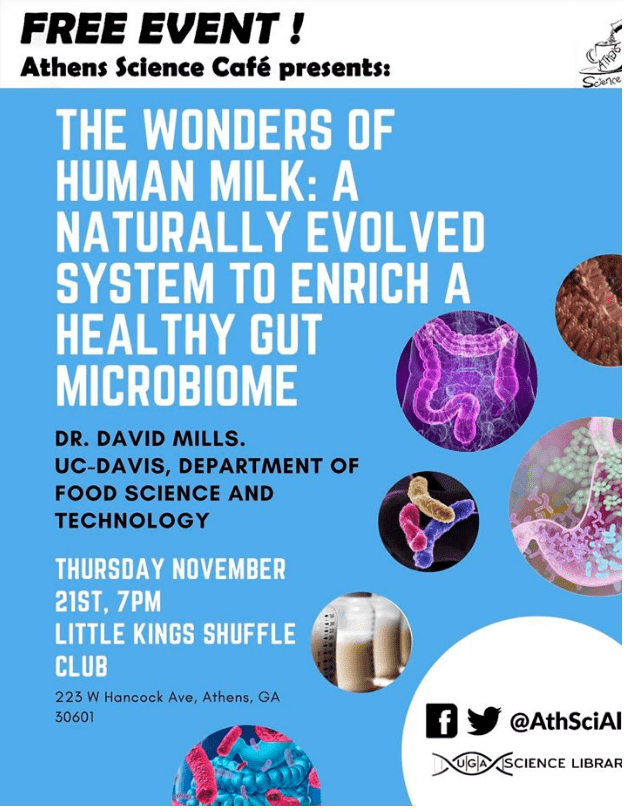It's a girl (or boy)! Your bundle of joy is finally here. Stepping into parenthood, life is magical. But it is not all sunshine and roses either with the constant cleaning, frequent feedings and sleepless nights. The baby falling sick on top of it, is your worst fear. No wonder you find yourself paranoid, sterilizing everything all the time. Despite your habit of sterilization, millions of bacteria are making their way in through your baby's mouth. Did you think that breast milk is sterile? No! it is teeming with bacteria which invade and colonize your baby's gastrointestinal tract. These bacteria, along with viruses and fungi constitute the gut microbiome. This diverse microbe population, crucial for our well-being, enhances metabolism, synthesizes vitamins, and fights infections.
A newborn is prone to be sick, frequently encountering novel pathogens. However, human milk has naturally evolved to provide the first line of defense against pathogens. It does so by transferring antibodies for pathogens encountered during pregnancy by the mother to the child. These antibodies in human milk confer protection against respiratory and gastrointestinal infections, and fights inflammatory diseases like asthma, atopy, diabetes, obesity, and inflammatory bowel disease, all while providing nutrition to the baby.

By composition, one of the building blocks of milk are special sugars called human milk oligosaccharides (HMO). HMOs cannot be digested by infants reaching the intestine and colon, instead the gut microbiome uses them as an energy source. HMOs have shown to improve gut health by feeding these beneficial bacteria. Cow’s milk is similar to human milk except that it contains significantly less HMOs. The lack of HMOs can cause gastrointestinal problems and a compromised immune system if used as a substitute for human milk. Geographic location, environment, and the mother's genetics all have a significant effect on the types of HMOs found in human milk. These acclimatized HMOs help fight pathogens in the baby's local environment. Feeding benefits the mother as well. It burns extra calories helping lose pregnancy weight. It helps in bonding with your baby releasing the hormone, oxytocin, and it lowers the risk of breast and ovarian cancer and also, osteoporosis.
Human milk is the perfect food for your baby with balanced sugars, fat, vitamins and proteins. No wonder, the World Health Organization (WHO) recommends exclusive breastfeeding in the first 6 months of infancy. If breastfeeding is not possible, infant formulas with the same HMOs and nutrient composition are available. It really is wonderful how nature has evolved human milk to not only boost gut health and immunity of the child but also to promote good health of the mother.
To learn more about the wonders of human milk and gut health, be sure to attend the upcoming Athens Science Café on November 21, 2019. Dr. David Mills, Professor in the Department of Food Science and Technology at University of California, Davis will be sharing his perspective on this wonderful discussion.

About the Author
 Ankita Roy is a Ph.D. Student in the Department of Plant Biology at the University of Georgia working with bean roots. She plays mommy to two kittens and can whip up a curry to fire your taste buds in no time. True to her cooking skills, she enjoys trying out new cuisines to satisfy her passion for everything flavorful. She is an executive member of the Indian Student Association. You can reach her at ankita.roy@uga.edu. More from Ankita Roy
Ankita Roy is a Ph.D. Student in the Department of Plant Biology at the University of Georgia working with bean roots. She plays mommy to two kittens and can whip up a curry to fire your taste buds in no time. True to her cooking skills, she enjoys trying out new cuisines to satisfy her passion for everything flavorful. She is an executive member of the Indian Student Association. You can reach her at ankita.roy@uga.edu. More from Ankita Roy
About the Author
- athenssciencecafehttps://athensscienceobserver.com/author/athenssciencecafe/April 17, 2020
- athenssciencecafehttps://athensscienceobserver.com/author/athenssciencecafe/April 12, 2020
- athenssciencecafehttps://athensscienceobserver.com/author/athenssciencecafe/April 3, 2020
- athenssciencecafehttps://athensscienceobserver.com/author/athenssciencecafe/March 30, 2020







